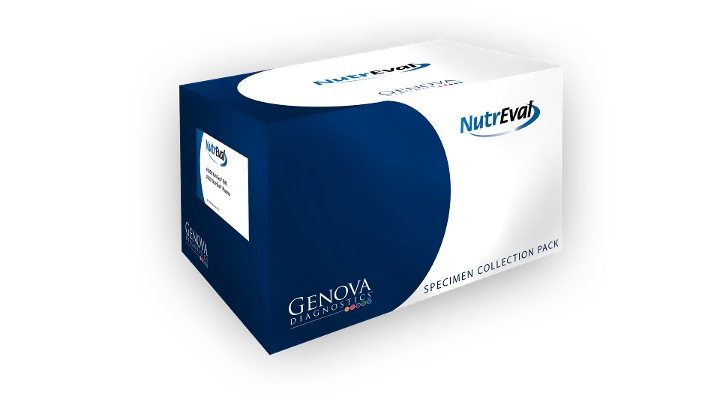We use cookies to enhance your browsing experience and analyze the performance of our website. By clicking Continue, you agree to the use of cookies. For more information, please see our Privacy Policy or update your Cookie Preferences.

According to the CDC, precision medicine, also called personalised medicine, is an individualised approach to patient care taking into account genetics, lifestyle, and environmental factors. Single Nucleotide Polymorphisms, or SNPs, are genetic variants that may predispose your patients to numerous chronic diseases. Testing can help clinicians identify a patient's genetic predispositions and tailor therapeutics accordingly.
Researchers have identified thousands of SNPs that relate to almost every chronic disease. Truth is, everybody has SNPs. SNPs are common and generally do not result in life-threatening presentations like genetic mutations, which are rare. SNPs are more subtle and act by reducing cellular functions and ultimately an optimal quality of life. Genomic testing can minimise risk by identifying hidden gene polymorphisms that may promote chronic disease. Many people mistakenly assume that the presence of a SNP means they are destined to experience the associated disease. Fortunately, most genes have flexible expressions and often are influenced by modifiable environmental, diet, and lifestyle factors.
In some instances, genotypic SNP testing may prompt phenotypic monitoring of associated biomarkers. For example, if a patient has a polymorphism for MTHFR, homocysteine may be more closely monitored.
SNP testing may be appropriate for patients with:
If you have a family history of disease and you are wondering about your own predisposition, you may consider genomic testing. The good news is that your genes are not your destiny. The genetic markers measured on Genova's profiles assess genes that can be beneficially influenced by making diet and lifestyle changes. You can make healthy changes that may impact genetic expression and disease prevention.
Genova's genomics profiles are ideal for patients who want to understand more about their genetic predisposition to the following conditions:
Genova's genomics testing requires a simple cheek swab to assess important genetic variations. We have many resources to help make your testing experience a success. Review the Test Preparation tab to learn more about the collection process.
The night before collection, use your normal nightly routine of brushing and flossing of teeth, but do not use mouthwash.
Specimen must be collected immediately upon rising. On the morning of collection, do not eat, brush or floss your teeth, use mouthwash, chew gum or use any tobacco, or coffee products. You may drink ONLY water before specimen collection. Just prior to collection, wash your hands completely with hand soap.
According to the CDC, precision medicine, also called personalised medicine, is an individualised approach to patient care taking into account genetics, lifestyle, and environmental factors. Single Nucleotide Polymorphisms, or SNPs, are genetic variants that may predispose your patients to numerous chronic diseases. Testing can help clinicians identify a patient's genetic predispositions and tailor therapeutics accordingly.
Researchers have identified thousands of SNPs that relate to almost every chronic disease. Truth is, everybody has SNPs. SNPs are common and generally do not result in life-threatening presentations like genetic mutations, which are rare. SNPs are more subtle and act by reducing cellular functions and ultimately an optimal quality of life. Genomic testing can minimise risk by identifying hidden gene polymorphisms that may promote chronic disease. Many people mistakenly assume that the presence of a SNP means they are destined to experience the associated disease. Fortunately, most genes have flexible expressions and often are influenced by modifiable environmental, diet, and lifestyle factors.
In some instances, genotypic SNP testing may prompt phenotypic monitoring of associated biomarkers. For example, if a patient has a polymorphism for MTHFR, homocysteine may be more closely monitored.
SNP testing may be appropriate for patients with:
If you have a family history of disease and you are wondering about your own predisposition, you may consider genomic testing. The good news is that your genes are not your destiny. The genetic markers measured on Genova's profiles assess genes that can be beneficially influenced by making diet and lifestyle changes. You can make healthy changes that may impact genetic expression and disease prevention.
Genova's genomics profiles are ideal for patients who want to understand more about their genetic predisposition to the following conditions:
Genova's genomics testing requires a simple cheek swab to assess important genetic variations. We have many resources to help make your testing experience a success. Review the Test Preparation tab to learn more about the collection process.
The night before collection, use your normal nightly routine of brushing and flossing of teeth, but do not use mouthwash.
Specimen must be collected immediately upon rising. On the morning of collection, do not eat, brush or floss your teeth, use mouthwash, chew gum or use any tobacco, or coffee products. You may drink ONLY water before specimen collection. Just prior to collection, wash your hands completely with hand soap.
Review information on the Test Preparation tab above for details on how medications and supplements may impact this test.
Support guides, charts, and additional aids can be found on the Support Materials tab. Additional educational materials can be found in our Learning Library.
Related Products
Symptoms of conditions can overlap. Certain disease states can influence other body systems. Additional testing can help identify those abnormalities.

The NutrEval® FMV uses blood and urine to evaluate over 125 biomarkers and assess the body's functional need for 40 antioxidants, vitamins, minerals, essential fatty acids, amino acids, digestive support, and other select nutrients.

The Methylation Panel is an innovative test designed to offer insight into the critical biochemical methylation pathway. Methylation metabolites are measured using plasma and whole blood, and genetic single nucleotide polymorphisms (SNPs) are analysed via buccal swab.